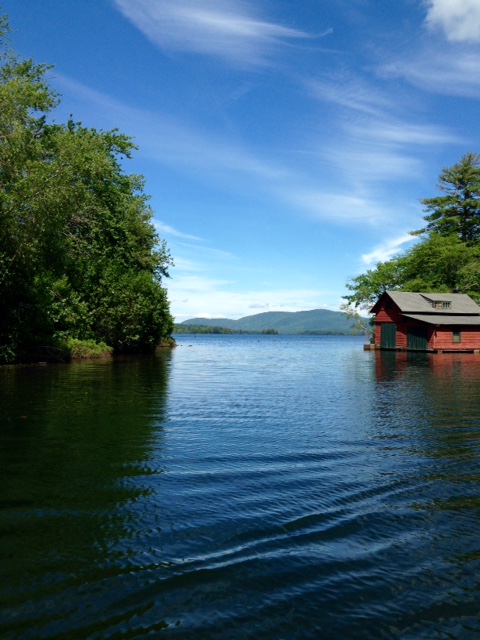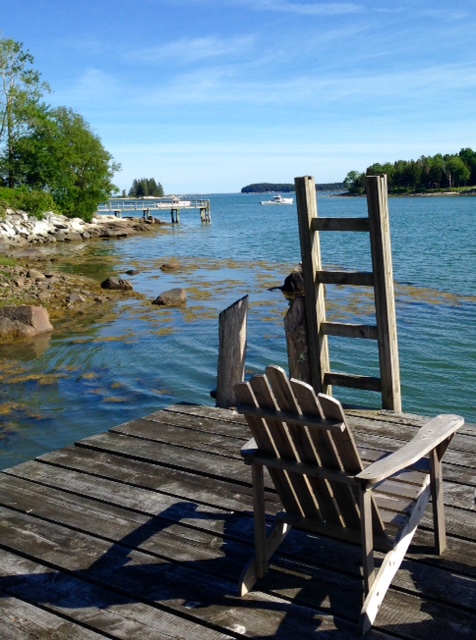There’s no better gift for a writer than an artists’ colony where benevolent patrons provide a bed, a studio, delicious, healthy meals, the company of other artists, and time, time, time to write. I’ve had the good fortune to spend time at Vermont Studio Center, Hedgebrook, Ragdale and Virginia Center for the Creative Arts, and the magic generated in these places is so powerful that I so metimes tiptoe through my ordinary life afterwards, wondering what price will be exacted for such unearned blessings.
metimes tiptoe through my ordinary life afterwards, wondering what price will be exacted for such unearned blessings.
But the competition for spots in Writer Heaven is fierce, and your good deeds only get you halfway up the ladder. This year one prestigious arts center had a record number of applications (over 1200 fellowship applicants including both writing and visual arts). I’ve screened for two residency programs, and every time I am amazed and dismayed by how strong the work samples are. As one director told me, “Everybody who gets a fellowship deserves it. But so many people who don’t get a fellowship deserve one too.” All you can do is create your best work, craft your strongest artist statement, and pray. Sometimes, a miracle.
But if you share my religious education, you’ve heard that God helps those who help themselves. And even if you don’t believe that, if you’re a writer, you know how much of your life has focused on the “do-it-yourself” adventure. You often choose your own subjects and genre and set your own deadlines. You can make your own successful writing retreat with the right materials: people, place and planning.
People
I had a friend in college who would say she was going home for the weekend then stay two nights at a local hotel to focus on her final projects. That’s one option for the do-it-by-yourself types, but part of the pleasure of writing retreats for me has always been the company.
I’ve made many friends—including a steadfast, lifelong one—while on retreat. I love breaking bread and drinking wine with other people who understand the struggles and rewards of sitting for hours at a time in front of a screen that actually requires your most serious mental and emotional engagement. Graduate writing programs offer such regular communion before everyone scatters into jobs and families. Reach out now to one or two people you know you can live and write with for a few days. Suggest a DIY retreat for next summer and give it time to percolate.
The appeal of many established residencies is location, i.e. a studio window looking onto a river where otters play or into a wooded grove full of birds or out on the ocean, the beach a short walk away. The natural world calms, inspires, provides perspective. I recommend finding a location abundant with reminders of life outside of the mind. I’ve done DIY retreats in locations as diverse as a cabin in the Black Hills, a cottage in mid-coast Maine, and even a friend’s home in the country. In each of these places, I was able to take mind-clearing walks and find spaces to sit and read or ponder the structure of a problem story. The point of an escape is that it must feel like an escape from your normal routine. Even if your budget is very tight and your available time very short, a writing-focused weekend at someone else’s home can renew you and your work. I know a writer with a partner who sometimes takes their children to visit relatives for a long weekend so he and his writer friends can reconnect and share work. (Hint: never take for granted such a supportive partner. He returns the favor.)
Planning
Just as you’d do before heading to Yaddo or Ucross, determine what project(s) you’ll work on and bring the books, manuscript copies, etc. you need. The DIY retreat requires additional planning on the front end to make it successful. Nobody will make your breakfast everyday or pack a lunch to leave at your door, but you can buy quick foods for breakfast and lunch and work with your fellow retreaters to sort out shopping for shared meals. Every time I’ve been on a DIY, the dinner hour has been a time of joyful community after a day wrapped in my own mind. It’s also a perfect transition into an evening of reading work aloud or socializing.
Of course not everyone keeps “normal” writing hours, so when you don’t have separate studios, planning is crucial. Everyone on a DIY needs to be forthright about their writing habits and needs. Ideally, everyone has a similar schedule. If not, figure out how to accommodate differences before conflicts arise. An early-riser, I usually take the room nearest the coffee maker and furthest fr om the late sleepers, and we all make sure there’s work space far from the bedrooms.
om the late sleepers, and we all make sure there’s work space far from the bedrooms.
How you benefit from a DIY retreat depends on the particular mix of writers and the length of the retreat. I’ve exchanged book manuscripts with writers outside my genre, tested new scenes aloud, and drafted new work from exercises assigned by my friends. While you may pay a little more for a DIY retreat, remember that Macdowell won’t let you come for only a few days, and your new friends at Jentel can’t bring your favorite brand of bourbon or explain how your writing has evolved over time.
Finally, keep applying to all of the excellent artist colonies and residencies available to you. Miracles still happen, and your DIY writer friends can serve as references, people who have actually shared work space and time with you and can verify that you’re normal. Or as normal as any other person who goes on vacation to get her work done.
Pictures by Chauna Craig
